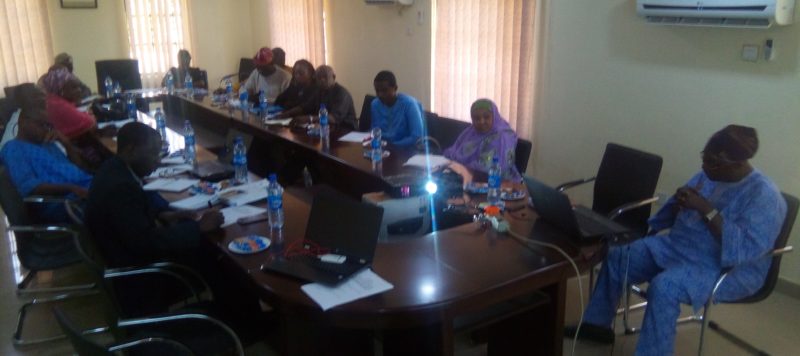An initiative involving Nigeria and 11 other African nations aims at addressing the worrisome issue of gender disparity in agriculture, while at the same time scaling up youth involvement in farming.

Tagged: “Integrated Landscape Management to Enhance Food Security and Ecosystem Resilience in Nigeria”, the project will address these challenges through women-specific economic empowerment and the International Institute of Tropical Agriculture (IITA) Youth Agripreneurs schemes.
The disclosure was made in Abuja on Wednesday, November 8, 2017 during the project’s Local Project Appraisal Committee (LPAC) meeting, which had paticipants drawn from ministries, departments and agencies (MDAs), non-governmental organisations and the media.
Promoted by the United Nations Development Programme (UNDP) and the Global Environment Facility (GEF), the project objective is to enhance productivity and promote sustainability and resilience of Nigeria’s agricultural production systems for improved national food security.
The meeting meeting attempted to review the project document, provide recommendation on the soundness of design and formulation, as well as assess its relevance, feasibility, potential sustainability, stakeholder / institutional arrangement and potential risk.
In a presentation, Prof. Emmanuel Oladipo, a consultant to the initiative, stressed that “Integrated Landscape Management to Enhance Food Security and Ecosystem Resilience in Nigeria” would enhance the policy and institutional enabling environment for achieving improved food security and integrate sustainable, resilient and inclusive value-chain approaches.
Similarly, he added, the scheme would scale up sustainable land and water management (SLWM) and climate- and water-smart agricultural (CSA/WaSA) practices that will ensure both environmental and social development benefits at farm and landscape level.
He listed key outputs to include cultivating 350,000 hectares (ha) under improved land use and agro-ecosystem management practices; increased value addition and access to markets realised by beneficiary smallholder farmers; and utilising 35,000 ha under intensive and diversified production for enhanced income and improved nutrition.
Mr Muyiwa Odele, Team Leader, Environment & Sustainable Development at the UNDP, explained that the objective of the project is to enhance productivity and promote sustainability and resilience of Nigeria’s agricultural production systems for improved national food security.
According to him, the essence of the meeting is to look for areas that needed to be reviewed and enhanced to meet the project objectives such as incorporating emerging opportunities.
Mr. Festus Eguaoje of GEF traced the history of the project, saying it is a GEF flagship programme involving 12 countries, and that it is country-driven. He pledged the support of the GEF in the execution of the project and enrichment of the document.
Mr. Osopade, Director, Department of Forestry, Federal Ministry of Environment, stressed the need for stakeholder engagement which he said is vital for the preservation of the forest and reafforestation. He added that government had begun reafforestation projects with the assistance of the private sector in some states of the federation. Osopade stated that the government is mobilising Nigerians to restore degraded environment.
The Director, who noted the potentials of the GEF project, called for openness and harnessing of the project to obtain the full benefits for the betterment of the country.
Hajia Salamatu Garba, Executive Director, Farmers Advancement Network (WOFAN), speaking on the controversy related alleged rejection of trees by rice farmers, said that rice farmers are not completely divorcing trees in their farms, but that they are incorporating economic trees in some locations.
Prof. Oladipo suggested that every aspect of the project must have a technical advisor to ensure better implementation.
He also recommended that the project be domesticated to ensure that the federal Government budget’s and finance it regularly.
Eguaoje recommended that GEF focal point should be included in the board to manage the project.
Mr. Cyril, the focal point, Federal Ministry of Agriculture suggested that climate change resistant methods should be included in the program.
Participants agreed that it will be discussed during the inception workshop, which will hold in a month’s time.
He also pointed out that Nigeria should use the GEF project to obtain relevant data.
Mr Michael Simire of EnviroNews Nigeria, a participant, remarked that, in the light of the fact that information dissemination and awareness raising are vital, the media should be considered a major stakeholder in the course of the execution of the project, in order to achieve effective implementation.
On the project’s soundness of design and formulation, participants agreed that the Steering Committee should be separated from the Technical Committee. While the latter will provide guidance to the project including the tree species to be reintroduced under the programme, the former will, on its part, explore the yearly work plan.
